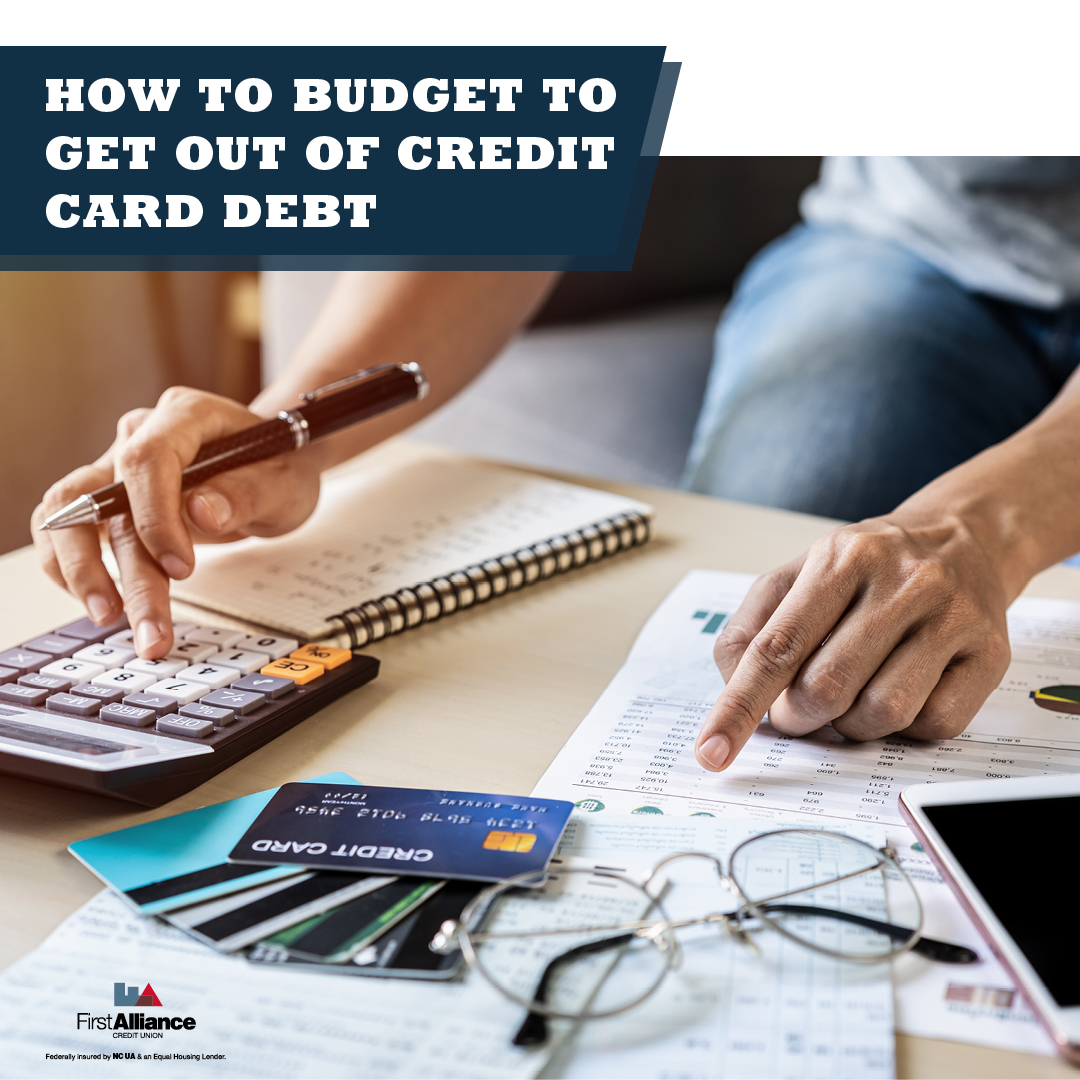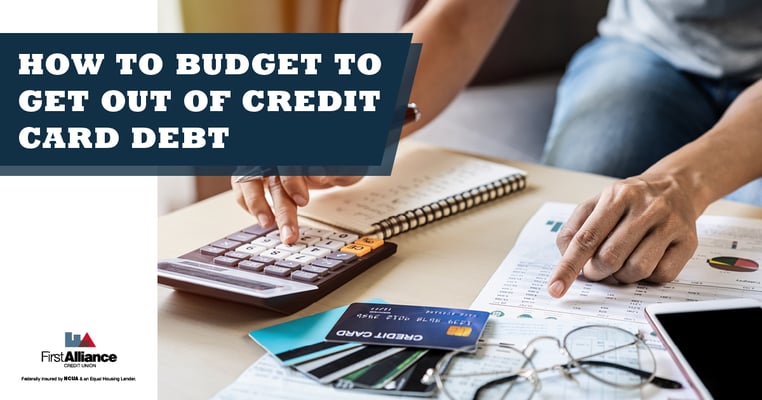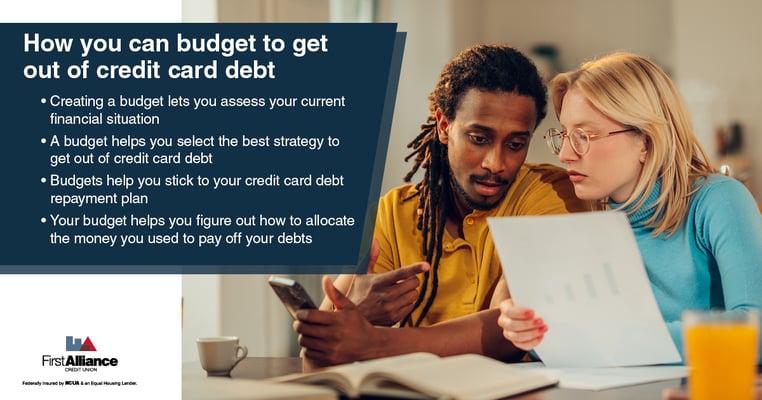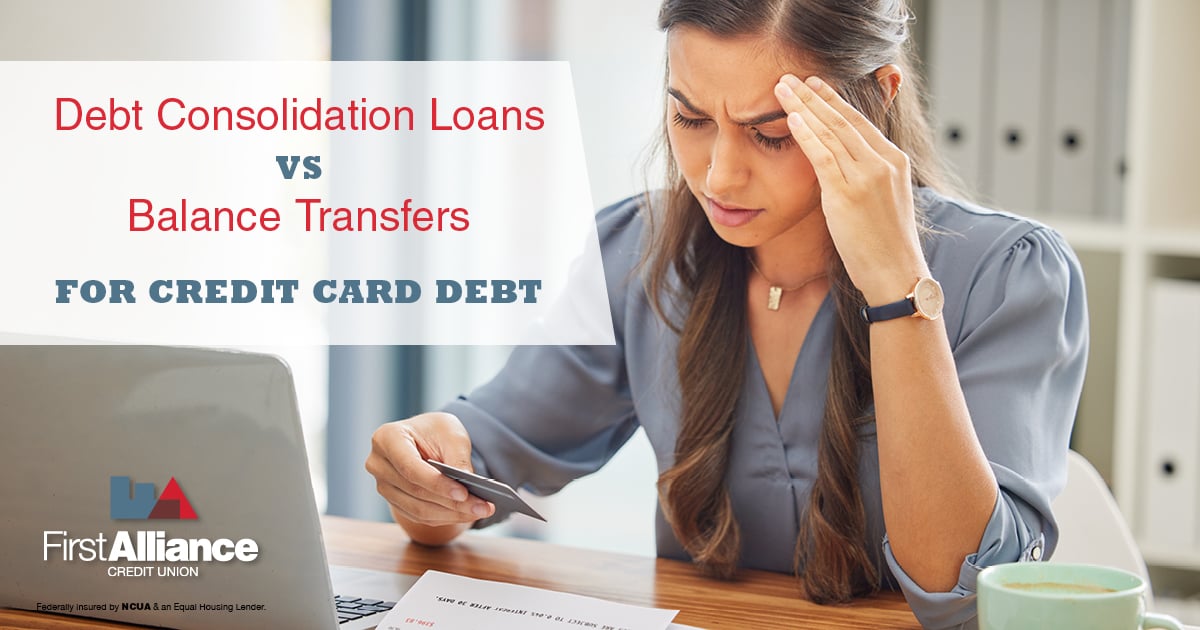Debt Consolidation Loans vs Balance Transfers for Credit Card Debt
Whether you’re drowning in credit card debt or just looking to streamline your payments, there are countless options to choose from when it comes to...

Credit card debt is a lot like a horror-movie monster. It can sneak up on you if you’re not careful, and once it appears it usually doesn’t go away without a lot of effort and some (financial) sacrifice.
As scary as credit card debt can be though, it’s not a monster and you’re no victim. You have access to a tool that can help you get out of credit card debt, tame your finances and even protect yourself against credit card debt in the future.
That tool? A monthly budget

When you create a monthly budget, you’re not just making sure your expenses are less than your income. You’re also creating a comprehensive guide to where your money is going each month.
Once you have all this information in front of you, you’ll have a much better grasp of your financial situation. This eliminates any uncertainty about where you’re spending your money, and how much you’re paying toward your debts each month. You can use this information to make informed decisions about where you’re spending your money and help you plan out financial goals, like paying off your debt.
Once you have your budget set up, you can use that information to start making a debt payment strategy. You can start by:
Once you have this information, figure out what debt payoff strategy works for you.
Snowball: Pay off your smallest debt first, then use the money you were using to pay off that debt to pay off your next smallest debt. This is the fastest way to reduce the number of debts you owe.
Reverse snowball: Pay off your largest debt first, then use the money to pay off your next largest debt. This strategy is slower than the snowball method but can save you more money.
Avalanche strategy: Pay off your debt with the largest interest rate first. This strategy should reduce the interest you pay on your debts.
There’s no one right strategy to use. However, you can use your budget to help you choose the method that works best in your situation. If you have a lot of smaller debts, the snowball method might be your best bet. If you have a lot of debts with several different amounts or different interest rates, though, you might want to consider the reverse snowball or avalanche methods, respectively.
You can also use the information you’ve collected using your budget to see if you can take advantage of a debt consolidation loan. When you know how much you have to pay each month, you can determine how much you would need to borrow to pay off your debts, and you can then talk with a loan advisor about what your monthly payment would be if you were to borrow that much from a credit union.
If you want additional help figuring out if a debt consolidation loan is right for you, you can use First Alliance Credit Union’s free downloadable debt consolidation calculator to figure out how much a debt consolidation loan can save you each month.
It’s one thing to create a debt repayment plan. It’s another thing entirely to stick with that plan. Let’s face it, no one likes repaying debts, and the temptation to use the money to buy something you’d like is always present.
A budget, though, helps keep you accountable to your plan. It’s harder to give into the temptation to buy something when you know the money you’d use is already spoken for. Even better, you can use the information in your budget to see if you have money to buy it and, if not, create a plan to save.
You can also keep your debt repayment plan on track by using your budget to put money in a savings account for an emergency. Nothing can derail a financial plan like an unexpected expense, so the more you have set aside in an emergency fund, the better you’ll be able to stick to your plan.

Once you’ve finally gotten your credit card debt paid off, you get to use your budget for one last debt-related task—figuring out how you’re going to use the money that was previously going toward your debts. You can use this money to work toward a financial goal, build up your emergency fund, or even increase some of the discretionary expenses you’ve cut back on. First, though, use some of that money to reward yourself for finally getting debt-free.
If you’re trying to pay off credit card debt, a budget can be your best friend. Not only can it help you assess your financial situation, it can also help you determine the right strategy for paying off your debt and help you stick to the plan. Once you’ve gotten out of debt, you can even use your budget to figure out the best way to allocate the money you were paying to the credit card companies.
If you’d like even more help getting out of debt, become a First Alliance Credit Union member today. You can talk with our lending advisors about getting a personal loan or line of credit to pay off your debt, download our free budget worksheet and even use our online banking platform and mobile app to make paying your monthly bills easy.

Whether you’re drowning in credit card debt or just looking to streamline your payments, there are countless options to choose from when it comes to...

When you are struggling with large amounts of debts owed to multiple creditors, it’s understandable to want to ease the burdens and simplify your...

Many people carry revolving debt with their credit cards. Reducing debt can help one’s chances to be considered eligible for loans. The drawbacks...